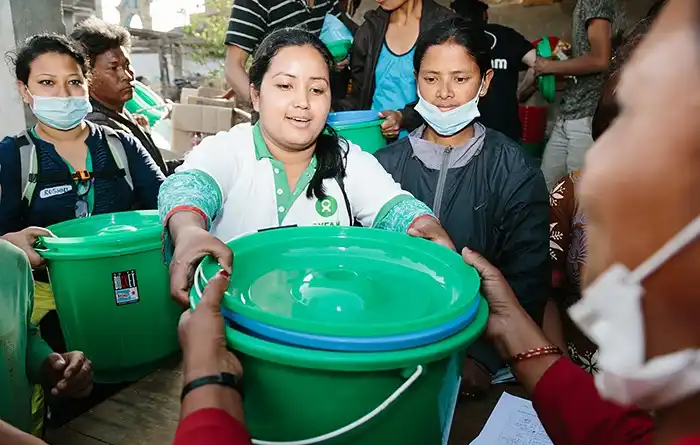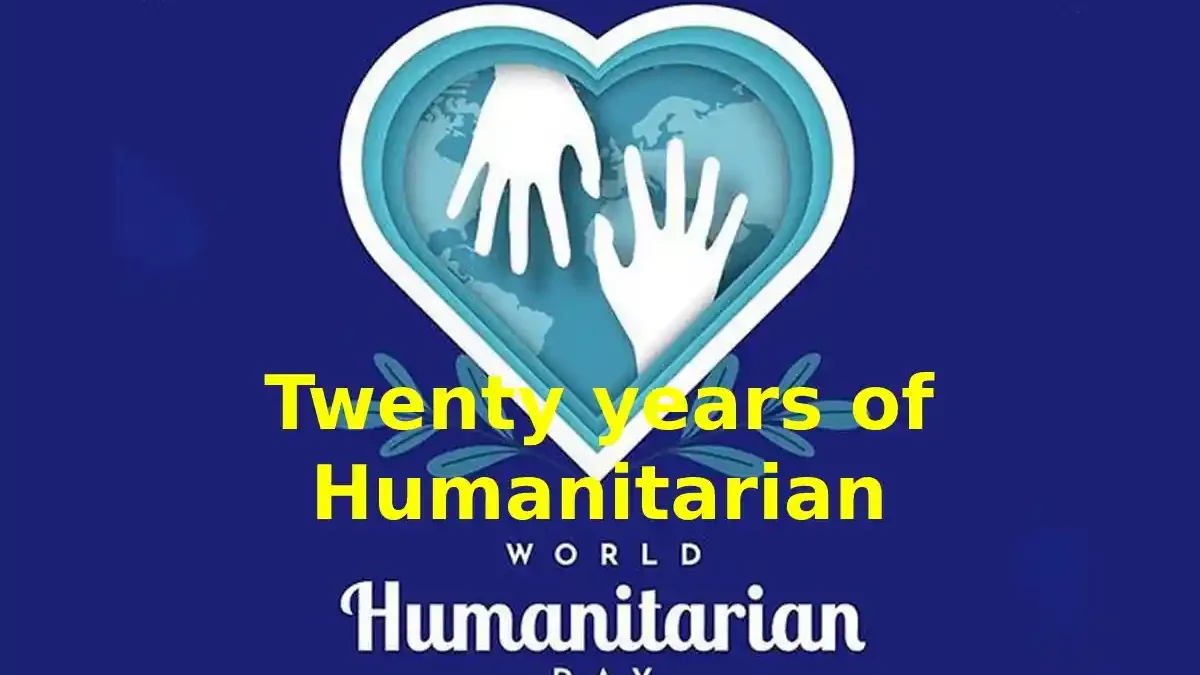Table of Contents
Introduction
- Twenty years of Humanitarian – As tango says, “twenty years is nothing” may be accurate in certain areas. However, things change so rapidly in the humanitarian sector that any retrospective looks at the last twenty years since the reports on “Health in Cooperation and Humanitarian Action” by Doctors of the World and Medicus Mundi were launched. That is because humanitarian action has accelerated in these two decades. After all, it allows us to see the necessary capacity for adaptation that has had since its inception. Moreover, many of the issues that we considered immutable or, at least, relatively stable have been modified in such a way as meaningful. Our institutes also commemorated its twentieth birthday in 2020, which helped us, as now colleagues of the NGOs in the health sector, to reflect on our trajectory, but, above all, to do so on the meaning of our action in such a changing world. Therefore, congratulating and rejoicing for the permanence of a project like the one in the Report, we share here some of those reflections that look primarily to the future but are attentive to the rear-view mirror and the lessons learned from our practice and that of the humanitarian sector in general.
- In a very synthetic way, we summarize here some of the keys to the transformations of humanitarian action in these two decades.
The causes of crises and human suffering have varied, but humanitarian needs continue to grow. The relevance of humanitarian action in the changing international scenario is beyond doubt. All the reports from the United Nations and other organizations show growth in groups at risk and the complexity of the causes that generate this increase in needs. The pandemic generated by COVID-19 has come to confirm this dramatically. Reports also show a widening crisis response gap.
- The belief that moral and independent aid is essential has gained weight, although it is sometimes not translated into reality on the ground. Of course, there is still a debate around neutrality or the need to broaden the view around the principles, including other cultural visions. But let’s not get confused. If humanitarianism is not based on clear principles and a vision of human beings as subjects of law with dignity, it will cease to make sense. Let’s stop using simplifying mantras such as “saving lives” and strengthen the very idea of a dignified life. Of life worth living.
- The deterioration of legal frameworks for the protection of rights has continued to grow. It is no longer only severe violations of international humanitarian law (IHL) by irregular groups. But also non-compliance with the legal frameworks that govern humanitarian action (IHL, international human rights law, refugee population law) by part of the States. The petty action of the European Union in the field of asylum and refuge has been one of the most severe humanitarian issues in this period.
- In this scenario, the urgency to devote more attention to protection tasks and the need to complement various modes of action has been consolidated: from diplomacy to political pressure, advocacy or reporting. As a result, the recovery of humanitarianism’s testimonial and critical aspects has become evident and must reinforce in the future.

More Key Information
The so-called “humanitarian system” has strengthened, but, at the same time, it has become more complex and bureaucratic. The humanitarian Reform of 2005, the Humanitarian Summit of 2016. Among other initiatives, have had positive impacts, such as the Grand Bargain. But the leadership of particular dangerous views of the humanitarian should remain replaced. A simple trick question, why should UN Deputy Secretaries-General for Humanitarian Affairs. It always be British citizens when the UK has been the country that has cut the most funding for these issues with dramatic consequences in specific crises? It does not seem that the changes in the system are going to come, as some are trying, from those who have led and skewed the system that they now want to reform.
- The emphasis on local action, including sub-state governments and authorities, must remain expanded. We are turning the famous “localization” into excessively rhetorical when not using it with certain opportunism from aid donor countries. Localizing must assume that “the response is as local as possible, as international as necessary.” And that means not only transferring funds but also strengthening and recognizing the leading role of local actors. Another trick question, is the humanitarian system up to that?
We must establish new ways of working together with other actors. The solution to humanitarian crises will not come from actors. In the best of cases, it will come from joint work between development, peacebuilding, human rights, feminist, environmental organizations, etc. We must open ourselves to these collaborations, fleeing from previous recipes. Proposals such as the “triple nexus” must remain approached with caution to avoid instrumentalization of the humanitarian for other purposes.
- Anticipating and incorporating preventive, risk-based and risk reduction approaches are increasingly relevant. Rare is the crisis or the disaster that appears suddenly. We must improve early warning and preparedness systems for various threats, breaking the schemes based only on response. In addition, the response improves if it anticipates.
- Quality and Accountability (Q&A) Initiatives: More Than Just a Fad. In these twenty years, what used to remain mere proposals have consolidated. As a result, the Essential Humanitarian Standard (CHS) and the rest of the related standards (Sphere, INEE…). It must be increasingly inexcusable references throughout the sector.
- Flexibility, flexibility, flexibility. If the humanitarian crises have shown something in these twenty years. It is necessary to analyze them without dogmatism or previous schemes. The principles, legal frameworks, quality standards must remain applied contextually, adapting to each reality and evaluating their results. In addition, with this open-mindedness, we have been incorporating other dimensions. And approaches that we ignored before: of course, the gender and feminist approach, and other intersectionalities; attention to issues of colonialism in humanitarian work and the decolonial perspective; the most rigorous consideration of environmental elements and the fight against climate change.
- It sounds cynical to say so, but everything seems to indicate that independent humanitarian action. It will continue to be necessary for decades to come. Some of the issues that we have cited, and others that colleagues from MdM and Medicus Mundi address in the Report. It will be essential for our work to continue providing “a bed for one night” to people. And groups suffering a result of conflicts and disasters. That and no other is the challenge. Let’s not confused.
Related pages:
- humanitarian parole
- humanitarian definition
- humanitarian supplies tarkov
- humanitarian service medal
- humanitarian def
- humanitarian aid
- humanitarian xp
- humanitarian supplies

